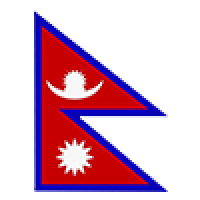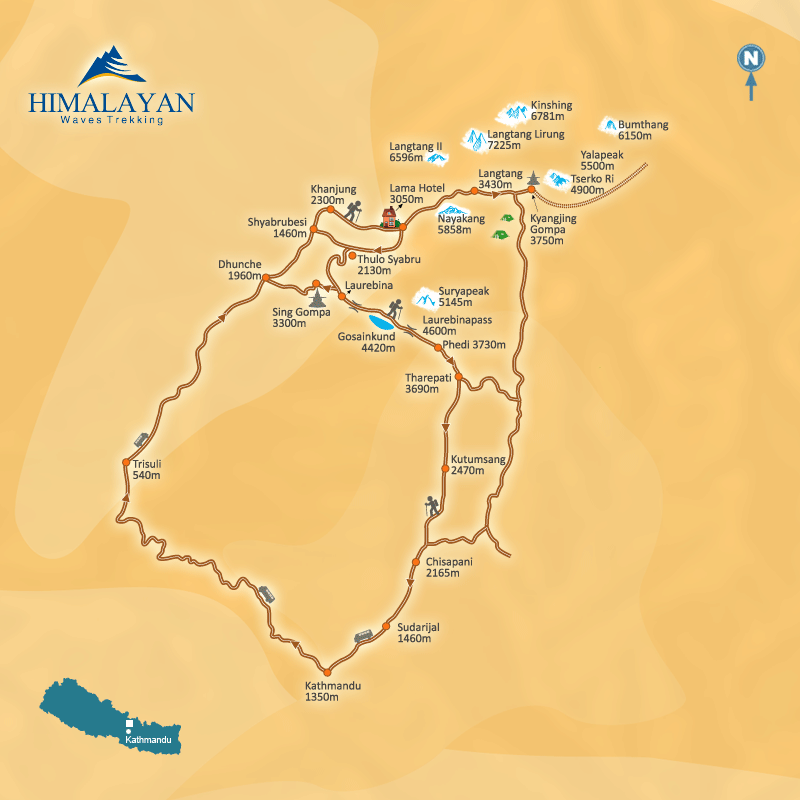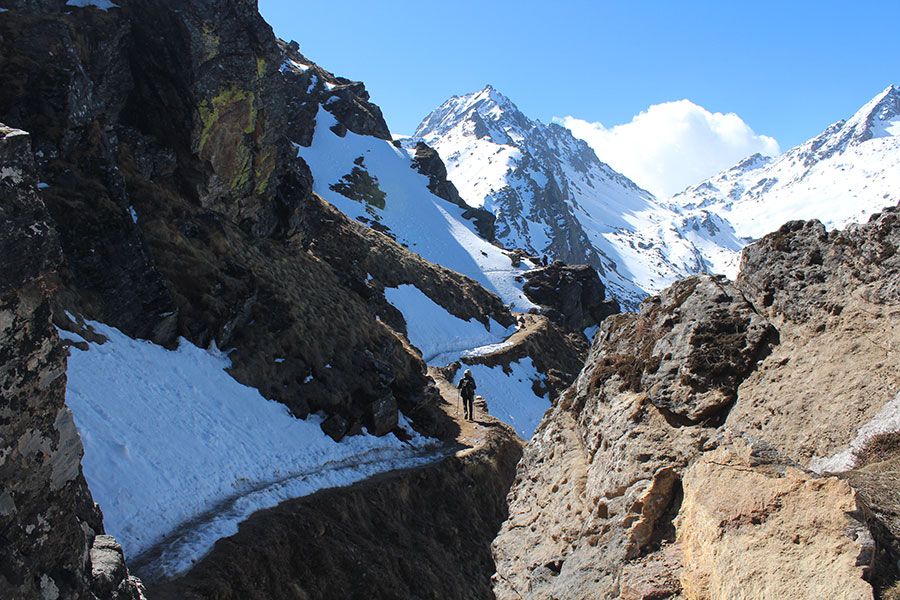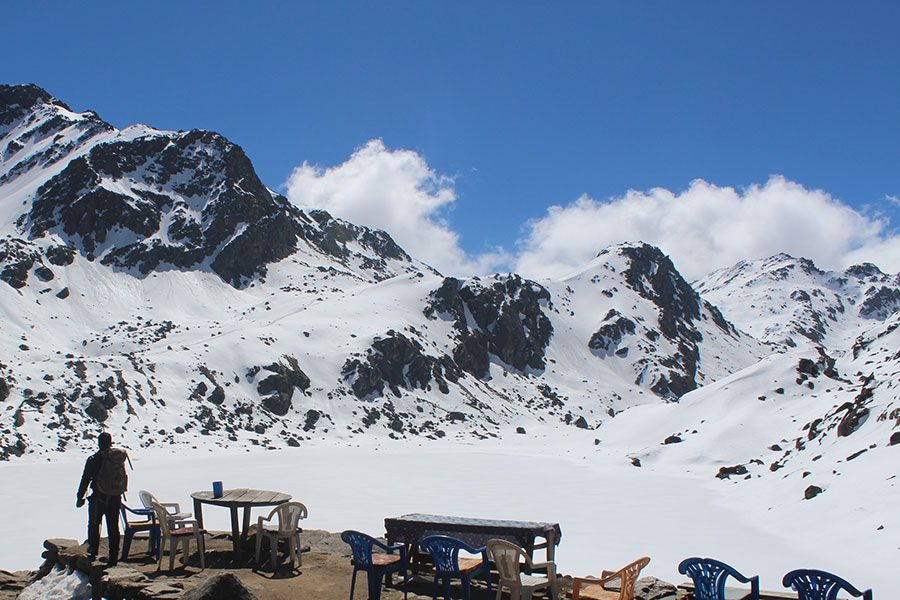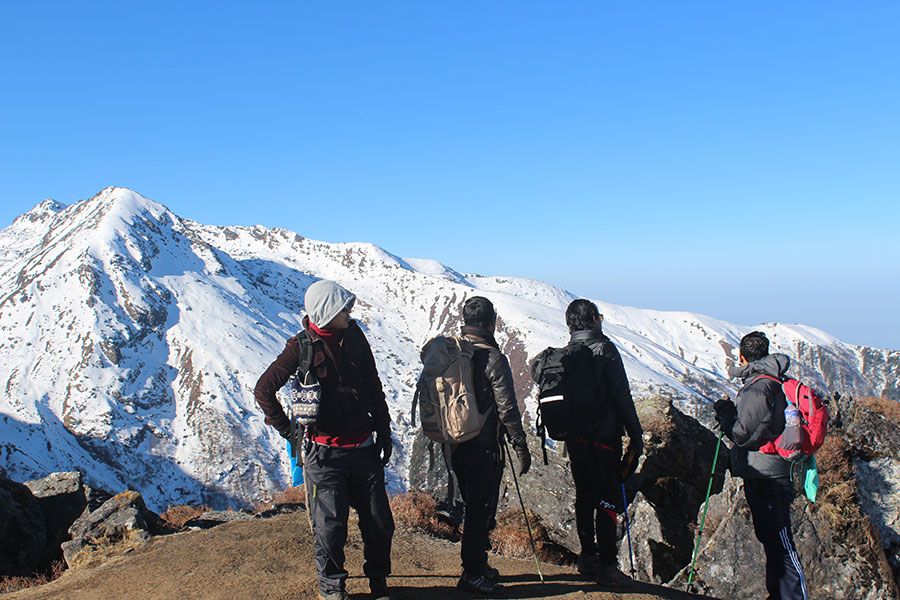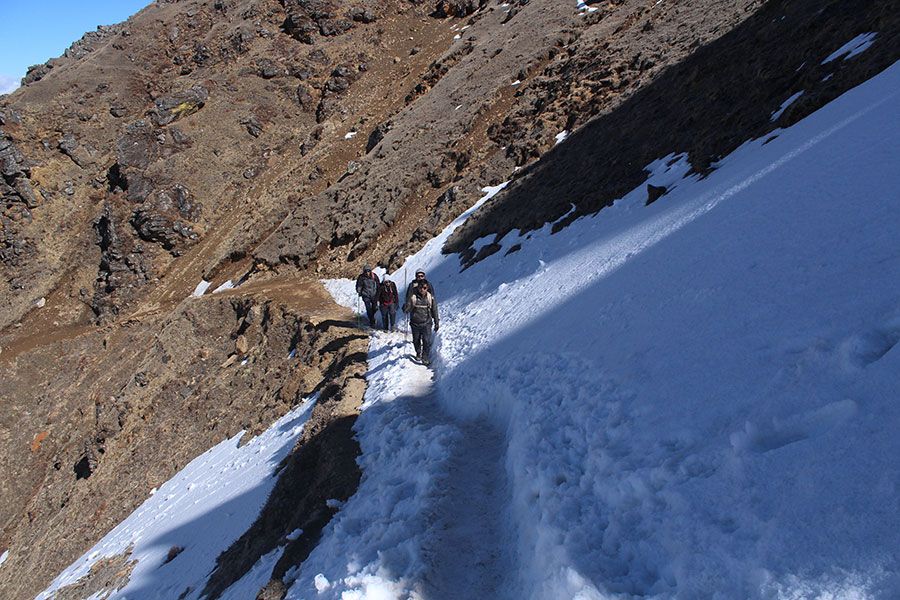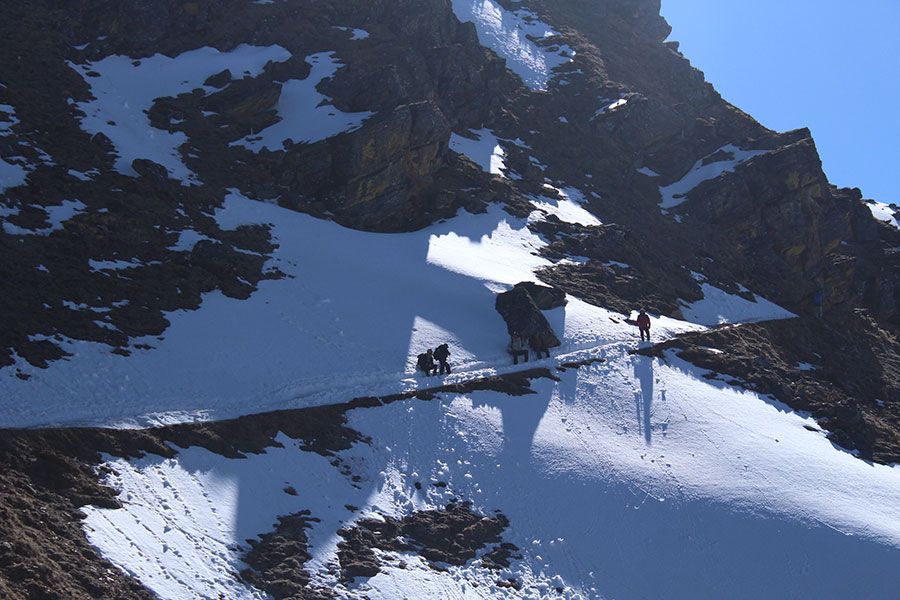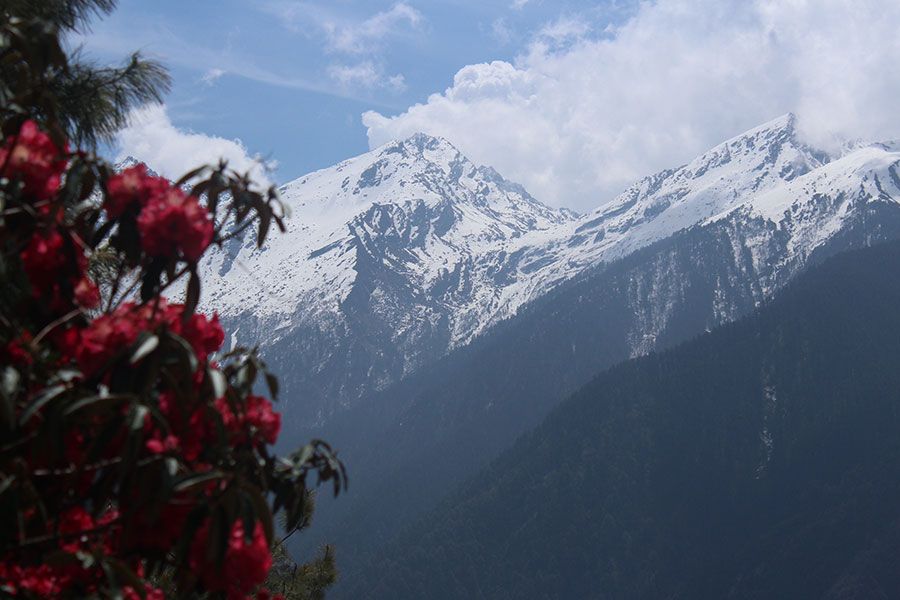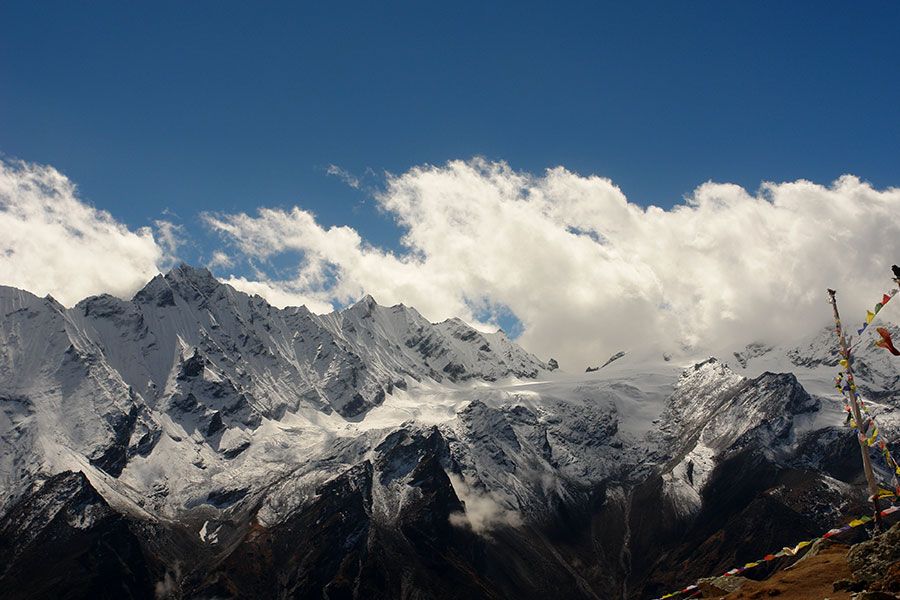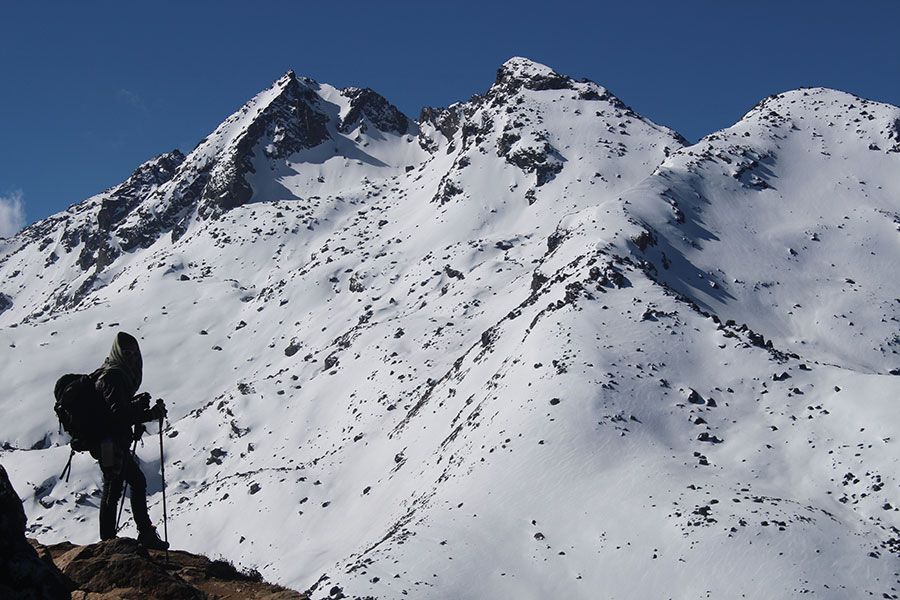-
SeasonsSpring / Summer / Autumn
Langtang, Gosainkund & Helambu Trek
-
Seasons:Spring / Summer / Autumn
Langtang, Gosainkund & Helambu Trek
Overview

Trip Fact
Price
Duration
Altitude
Group Size
Accommodation
Trip Start From
Trip Ends At
Why Choose This Trip?
1. Scenic Trail Through the Heart of the Langtang Valley
The Langtang Trek offers a stunning journey through lush forests, alpine meadows, and glacier-fed rivers, leading to Kyangjing Gompa (3750m). With clear views of Langtang Lirung and surrounding peaks, this trek is a nature lover’s dream.
2. Spiritual Journey to the Holy Lakes of Gosaikunda
The trek continues to the sacred alpine lakes of Gosaikunda (4420m)—a revered pilgrimage site for Hindus and Buddhists. Surrounded by snow-capped peaks, the emerald lakes offer both beauty and spiritual peace.
3. Panoramic Ascent to Tserko Ri (4900m)
A day hike from Kyangjing Gompa to Tserko Ri delivers one of the best panoramic viewpoints in the Himalayas. Watch the sunrise over jagged mountain ranges—it’s the visual highlight of the Langtang Trek.
4. Cultural Richness from Tamang Villages to Helambu Region
From the traditional villages of Thulo Syabru to the Buddhist monasteries of Helambu, this itinerary is packed with authentic Himalayan culture. It’s not just a trek—it’s a walk through the heritage of Nepal’s mountain communities.
5. A Challenging Yet Rewarding Himalayan Traverse
The route crosses the Laurebina Pass (4600m) before descending into the tranquil region of Helambu. The diverse terrain—from alpine wilderness to subtropical valleys—makes the Langtang Trek both physically engaging and incredibly varied.
Trip At Glance
Brief Itinerary
-
Day 01:Arrival in Kathmandu, meet at the airport and transfer to Hotel
-
Day 02:Drive Kathmandu – Shyabrubesi (1460 m) by bus – 8 ½ Hrs journey
-
Day 03:Start trekking, o/nt at Khanjung (2300 m)
-
Day 04:Lama Hotel (3050 m)
-
Day 05:Langtang (3430 m)
-
Day 06:Acclimatisations Day
-
Day 07:Kyangjing Gompa (3750 m)
-
Day 08:Kyangjing Gompa (3750m), Day trip of Tserko Ri ( ca. 4900 m)
-
Day 09:Lama Hotel (3050 m)
-
Day 10:Thulo Syabru (2130 m)
-
Day 11:Sing Gompa (3300 m)
-
Day 12:Gosainkund (4420 m)
-
Day 13:Cross Laurebina (Surja) (4600 m), o/nt at Phedi (3730m)
-
Day 14:Tharepati (3690 m)
-
Day 15:Kutumsang (2470 m)
-
Day 16:Chisapani (2165m)
-
Day 17:Sundarijal (1460 m), Drive Sundarijal – Kathmandu (1350 m) by car – 1 ½ Hrs journey
-
Day 18:Kathmandu – leisure time
-
Day 19:Kathmandu – leisure time and evening farewell dinner
-
Day 20:Departure to connect next destination or you may extend the trip as per your desire and time permit
Detailed Itinerary
Day 1: Arrival in Kathmandu, meet at the airport and transfer to Hotel
Upon arrival in Kathmandu, you’ll be warmly welcomed at Tribhuvan International Airport and transferred to your hotel. After check-in, you can relax from your journey or take a short stroll through Thamel’s vibrant streets to get a taste of the local culture.
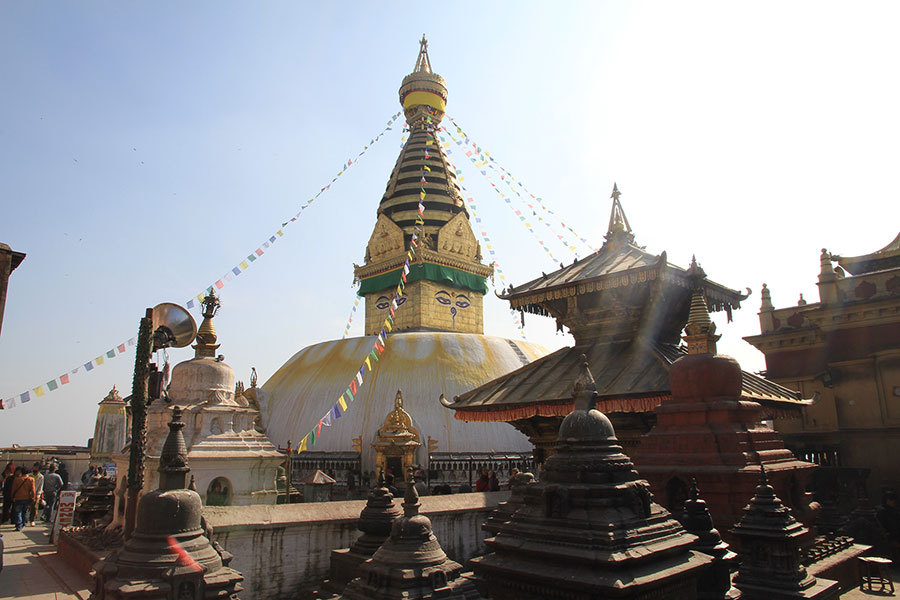
Day 2: Drive Kathmandu – Shyabrubesi (1460 m) by bus – 8 ½ Hrs journey
Begin the journey early with a scenic drive from Kathmandu to Syabrubesi (1,460 m), a small village and gateway to the Langtang region. The 8 to 9-hour ride winds through the Trishuli River valley and terraced hillsides, offering glimpses of rural Nepal and distant mountain views.
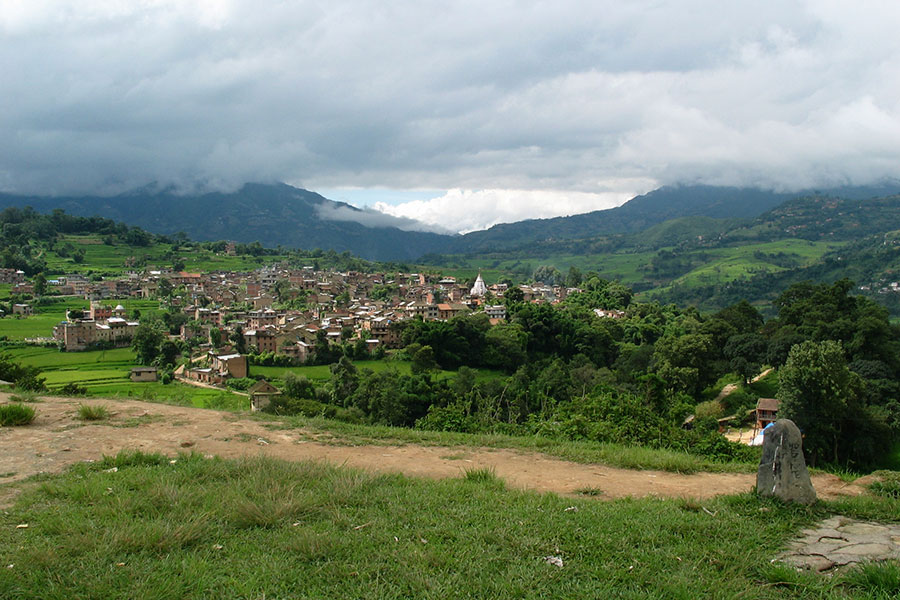
Day 3: Start trekking, o/nt at Khanjung (2300 m)
Your trek officially begins today as you follow the trail alongside the Langtang Khola through thick forests and small settlements. After several hours of ascent, you’ll reach Khanjung or Lama Hotel (approx. 2,300 m), a cozy forest-side stopover.
Day 4: Lama Hotel (3050 m)
Continue trekking uphill through oak and rhododendron forests. As you gain altitude, the forest thins and gives way to alpine meadows. By afternoon, you’ll reach Langtang village (3,430 m), a settlement rebuilt after the 2015 earthquake, with majestic views of Langtang Lirung.
Day 5: Langtang (3430 m)
A shorter but scenic trek leads you to Kyanjin Gompa (3,750 m), a serene alpine village nestled beneath snow-capped peaks. Along the way, you’ll pass mani walls and yak pastures. After lunch, explore the ancient monastery and the local cheese factory.
Day 6: Acclimatisations Day
Take an acclimatization day at Kyanjin Gompa. You may opt for a challenging day hike to Tserko Ri (~4,985 m), offering panoramic views of Langtang Lirung, Yala Peak, and surrounding Himalayan giants. Return in the afternoon to relax and adjust to the altitude.
Day 7: Kyangjing Gompa (3750 m)
Retrace your steps downhill through yak pastures, river valleys, and forests back to Lama Hotel (3,050 m). The descent is easier on the lungs but requires good care on rocky paths.
Day 8: Kyangjing Gompa (3750m), Day trip of Tserko Ri ( ca. 4900 m)
Descend further through the forested trails to Syabrubesi. You can choose to follow the same route or take a scenic detour via Sherpagaun or Rimche for different views and a cultural encounter.
Day 9: Lama Hotel (3050 m)
Drive back to Kathmandu from Syabrubesi. Though long and bumpy, the journey offers time to reflect on your Langtang adventure. Upon arrival, settle back into your hotel and enjoy a warm meal.
Day 10: Thulo Syabru (2130 m)
Enjoy a full leisure day in Kathmandu. Visit UNESCO heritage sites like Boudhanath, Pashupatinath, or Patan Durbar Square, or explore local markets and enjoy the city's café culture.
Day 11: Sing Gompa (3300 m)
Start the Gosaikunda leg of your trek by driving again to Syabrubesi and trekking to Sing Gompa (3,300 m). The trail ascends through forests and pastures with occasional views of Ganesh Himal and glimpses of Tibetan-influenced culture.
Day 12: Gosainkund (4420 m)
Trek to the sacred alpine lakes of Gosainkund (4,420 m), revered by both Hindus and Buddhists. The trail is steep but breathtaking, with lakes shimmering under dramatic skies and surrounded by snow-capped peaks.
Day 13: Cross Laurebina (Surja) (4600 m), o/nt at Phedi (3730m)
Begin early for the challenging ascent over Laurebina (Surya) Pass (4,600 m). After enjoying the panoramic views from the top, descend carefully to Phedi (3,730 m) where you'll spend the night.
Day 14: Tharepati (3690 m)
Trek from Phedi to Tharepati (3,690 m), passing through yak pastures and ridge trails with sweeping views of Langtang, Dorje Lakpa, and other Himalayan ranges.
Day 15: Kutumsang (2470 m)
Descend from Tharepati to Kutumsang (2,470 m), walking through lush forests and charming settlements. You’ll begin to feel the transition from alpine to mid-hill culture and climate.
Day 16: Chisapani (2165m)
Continue to Chisapani (2,165 m), a beautiful hilltop village known for sunrise views over the Himalayas. The walk passes through the Shivapuri Conservation Area, rich in flora and fauna.
Day 17: Sundarijal (1460 m), Drive Sundarijal – Kathmandu (1350 m) by car – 1 ½ Hrs journey
Complete your trek with a descent through Shivapuri National Park to Sundarijal (1,460 m), crossing waterfalls, streams, and terraced farmlands. From there, drive back to Kathmandu, where your hotel room and city comforts await.
Day 18: Kathmandu – leisure time
Take a full leisure day in Kathmandu. Enjoy last-minute shopping, revisit favorite sights, or simply unwind at a rooftop café or wellness center.
Day 19: Kathmandu – leisure time and evening farewell dinner
Spend your final day at your own pace. In the evening, gather for a traditional farewell dinner with cultural performances, celebrating the completion of your Himalayan journey.
Day 20: Departure to connect next destination or you may extend the trip as per your desire and time permit
After breakfast, transfer to the airport for your flight home or continue exploring Nepal if time permits. You leave with lasting memories of high mountains, sacred lakes, and warm hospitality.
Package Details
Cost Includes:
- Airport arrival and departure private transfer
- 4 nights accommodation in Kathmandu with breakfast on twin share basis
- Kathmandu – Shyabrubesi transfer by bus and Sundarijal – Kathmandu transfer by car
- 15 nights full board (BLD) teahouse trek with accommodation in mountain lodge
- An english speaking trekking guide and porters (2 guests = 1 Porter & Max 25 kg)
- National Park Permit and TIMS (required passport copy and 2 picture for permit).
- Farewell dinner with Nepalese cultural dance show
Cost Excludes:
- Personal nature of expenses and trekking gears
- Any airfare, domestic airport taxes and excess baggage fee ( 20KG free)
- Travel Insurance for rescue operation if any form
- Extra night accommodation or accommodation if earlier return from trekking by any reason
- Extra cost occur by any reason which is not in our control such as strike, landslide and accident etc
- TIPS for trekking staffs and other things which is not included above.
To Do’s In Kathmandu
- Walk Through History at UNESCO Sites
Kathmandu Valley offers an unforgettable journey through history with UNESCO World Heritage Sites like Swayambhunath, Boudhanath, Pashupatinath, and the ancient Durbar Squares—each filled with rich culture, architecture, and spiritual depth. - Shop, Eat & People-Watch in Thamel
Thamel is the buzzing heart of Kathmandu where you can shop for trekking gear, local crafts, and books, or relax in rooftop cafés and enjoy a wide mix of global and local food. - Taste the Real Nepal (Beyond Dal Bhat)
Kathmandu’s food scene delivers everything from juicy momos and traditional Newari dishes to hearty Thakali thalis, making it a top spot for tasting Nepal’s diverse culinary flavors. - Easy Day Trips When You Need a Break from the Buzz
Short escapes to places like Bhaktapur, Nagarkot, Dhulikhel, or Chandragiri offer peaceful views, cultural depth, and refreshing air—all within a quick drive from the city. - Recover, Recharge & Just Chill
After a trek or long journey, Kathmandu is perfect for recovery with spas, yoga studios, serene gardens, and rooftop lounges that help you unwind at your own pace.
FAQs
Plan your Trip
Sangeeta Bhandari
sangeeta@himalayanwavestrekking.com
Quick Inquiry
Write Your Review
We’d love to hear your thoughts! Please leave a star rating and share your review of this trek.
